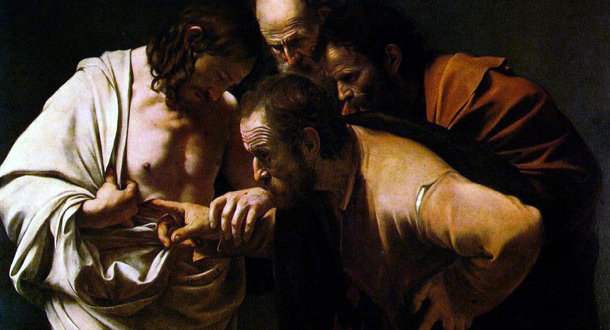
Feast of Saint Thomas, Apostle
Scripture:
Ephesians 2:19-22
John 20:24-29
Reflection:
The story of Thomas challenges us to appreciate the actual value of community life and the reality that being a Christian has both a private and social dimension – both are vital.
In fact, Thomas’s experience serves us very well in this present age – an age that is overly dependent on scientific methods and empirical proof.
Retracing his story, we can see that when Thomas is absent and away from the community, he struggles with accepting personal testimony and witness, despite this being reinforced by the commonality of the experience of the other disciples.
He falls back on a need for empirical proof – ‘unless I see the mark of the nails in his hands and put my finger into the nail marks and put my hand into his side, I will not believe.”
Yet, a week later, when he was with the disciples, he shared in a common experience of faith. Jesus is with the community, and Thomas shares in this moment.
Now we see that Thomas does not need proofs; in fact, he neither asks for them nor needs to accept them, even when Jesus offers.
Today, let us be thankful for the witness, companionship, prayer and support of those around us. The experience of the community can reinforce, strengthen and enlighten our faith journey, and we, in turn, support others in and through our witness.
Fr. Denis Travers, C.P., is the Provincial Superior of Holy Spirit Province, Australia.







